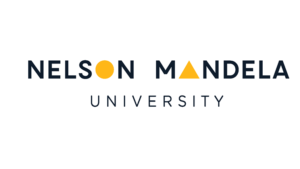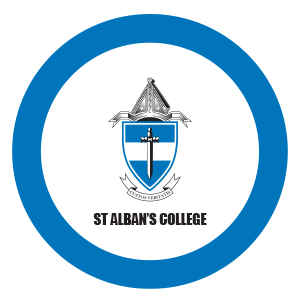To study at the Nelson Mandela University, NMU for any first degree or second degree, an applicant must have the following requirements for successful admission.

NMU Admission Requirement
Below is the 2021 NMU admission brochure that contains the various faculty and courses admission requirement needed for admission into Nelson Mandela University, NMU.
- The table below explains how well you will need to do in your school subjects to meet the minimum entry requirements for each type of qualification.
- It is important to note that the table refers to minimum entry requirements.
- The university may add additional requirements for specific programmes.
| Qualification | Minimum Statutory Entry Requirement |
|---|---|
| Higher Certificate | Pass NSC with: A minimum of 30% in the language of learning and teaching of the higher education institution, together with any other university requirements. |
| Diploma | Pass NSC with: A minimum of 30% in the language of learning and teaching of the higher education institution, coupled with an achievement rating of 3 (40–49%) or better in four recognised NSC 20-credit subjects (this excludes LO which is 10-credits), together with any other university requirements. |
| Bachelors Degree | Pass NSC with: A minimum of 30% in the language of learning and teaching of the higher education institution, coupled with an achievement rating of 4 (50–59%) or better in four recognised 20-credit NSC subjects (this excludes LO which is 10-credits), together with any other university requirements. |
*(LOTL) Language of Teaching & Learning, which is English at Nelson Mandela University.
Designated Subjects
As per the Government Gazette Notice No.165 No. 41473 dated March 2018, the list of designated subjects has been revoked with immediate effect. Subsequent to this announcement, the revised admission requirements for degree entry as they pertain to Nelson Mandela University, are further explained below:
- Applicants must meet the minimum statutory entry requirements for each type of qualification they wish to apply for as stated above.
- The University may add additional subject-specific requirements for certain qualifications.
- Applicants will still need to comply with the Admission Point Score (APS), subject-specific level(s) set for specific subjects which may be required for certain qualifications, and/or fall within the APS testing band before a final decision will be made of the outcome of his/her application.
- Any recognised 20-credit NSC subject combinations (dependant on school capacity) can be used towards applying for degree studies (this excludes LO which is 10-credits), provided that each of these four subjects is also passed on a level 4 (50-59%) or higher.
How to calculate your NMU Admission Point Score (APS)
- The APS system allocates point values to the levels of achievement obtained for your matric subjects.
- Write down your relevant NSC subjects and the levels obtained.
- Allocate points according to the table below.
- Add up the number of points you have to calculate your APS.
- Alternatively, use our online APS calculator
Table A: School Performance Score (SPS)
| NSC | NSC % | APS | APS Percentage |
|---|---|---|---|
| 8 | 90 -100 % | ||
| 7 | 80 -100 % | 7 | 80 -89 % |
| 6 | 70 -79 % | 6 | 70 -79 % |
| 5 | 60 -69 % | 5 | 60 -69 % |
| 4 | 50 -59 % | 4 | 50 -59 % |
| 3 | 40 -49 % | 3 | 40 -49 % |
| 2 | 30 -39 % | 2 | 30 -39 % |
| 1 | 0 -29 % | 0 | 0 -29 % |
Example 1
To enrol for the Diploma (Analytical Chemistry) you need an Admission Point Score (APS) of at least 34, as well as a National Senior Certificate (NSC) pass in Mathematics & Physical Science on at least a level 4 (50 – 59 %).
| NSC Subject | NSC % | Level | APS Points allocated |
|---|---|---|---|
| English | 65 % | 5 | 5 |
| Xhosa | 60 % | 5 | 5 |
| Mathematics | 70 % | 6 | 6 |
| Geography | 55 % | 4 | 4 |
| History | 80 % | 7 | 7 |
| Life Orientation | 74 % | 6 | 6 |
| Physical Science | 71 % | 6 | 6 |
| Admission Point Score | 39 |
This applicant has met the minimum requirements for admission to the Diploma (Analytical Chemistry).
Example 2
To enrol for the BCom (Accounting) you need an Admission Point Score (APS) of at least 38, as well as four subjects from the designated list and a pass in Mathematics on at least level 5 (60 69 %).
| Matric Subject | NSC % | Level | APS Points Allocated |
|---|---|---|---|
| English | 70 % | 6 | 6 |
| Afrikaans | 80 % | 7 | 7 |
| Mathematics | 69 % | 5 | 5 |
| Accounting | 65 % | 5 | 5 |
| Life Orientation | 60 % | 5 | 5 |
| Physical Science | 74 % | 6 | 6 |
| Life Sciences | 81 % | 7 | 7 |
| Admission Point Score | 41 |
This student has met the minimum admission requirements for the BCom (Accounting) programme.
Additional requirements
In addition to the minimum APS requirement, additional subject requirements have been set. These include:
- Mathematics: This is required for certain programmes. Only performance in the core Mathematics topics (papers 1 and 2) will be used when making admission decisions. However, school learners are encouraged to also take the optional Mathematics topics. In certain programmes, applicants who have Mathematical Literacy instead of Mathematics may be admitted to a programme where a Mathematics entry requirement has been set. In this instance, additional modules may be added to the programme, which may extend the length of the programme.
- Mathematical Literacy: In view of the importance of quantitative literacy for success at Higher Education studies, a minimum of a 3 (40-49%) for Mathematical Literacy is preferred for likely admission to National Higher Certificate and National Diploma programmes and a 4 (50-59%) for likely admission to degree programmes where Mathematics is not a requirement, unless otherwise indicated.
NELSON MANDELA UNIVERSITY POSTGRADUATE ADMISSION REQUIREMENT
Postgraduate Diplomas Requirements
- An appropriate Bachelor’s degree OR
- Admission to the status of that degree OR
- Attained a level of competence
- Some Schools/College may accept and Advanced Diploma for entry into a Postgraduate Diploma if HEQF (Higher Education Qualification Framework) requirements are met.
Duration
- A minimum of at least two consecutive semesters. Except with the permission of Senate all modules shall be completed at the University.
Curriculum
- The curriculum will contain advanced reflection, practice and research methods in the area of specialization and may include a sustained research project in accordance with College rules approved by Senate.
Bachelor of Honours Degrees Requirements
- An appropriate Bachelor’s degree OR
- Admission to the status of that degree OR
- Attained a level of competence
Duration
- A minimum of at least two consecutive semesters. Except with permission of Senate all modules shall be completed at the University.
Curriculum: The curriculum for the Honours degree shall include a prescribed research project as one of the modules wich shall account for a minimum of 25% of the credits for the degree. Masters by Coursework and Masters by Research Requirements
- A relevant prerequisite degree OR
- Admission to the status of that degree OR
- Attained a level of competence
Duration Coursework
- A minimum of two consecutive semesters (full time) or 4 consecutive semesters (part-time) before the degree may be conferred.
- With permission and in terms of College regulations, periods of attendance at the graduate level at another institution or in another College may be accepted. (Consult with relevant School).
Research
- A minimum of two consecutive semesters (full time) or 4 consecutive semesters (part-time) before the degree may be conferred.
Research
- Candidates shall be required to pursue an appropriate programme of research on a subject on a subject falling within the scope of the studies presented at the University. Students must also adhere to possible other conditions prescribed by Colleges/Schools.
Doctor of philosophy or supervised Doctor degrees by research
Requirements
- A relevant prerequisite degree OR
- Admission to the status of that degree
Duration
- A minimum of four consecutive semesters (full time) or eight consecutive semester (part-time) before the degree may be conferred.
Curriculum
Students will be required to pursue an approved programme of research on a subject falling within the scope of studies at the University.
Such a programme shall make a distinct contribution to the knowledge or understanding of the subject and afford evidence of originality shown either by the discovery of new facts and by the exercise of independent critical power.
Students must also adhere to other possible conditions prescribed by Colleges/Schools.




Nice Article, Following from SEKU